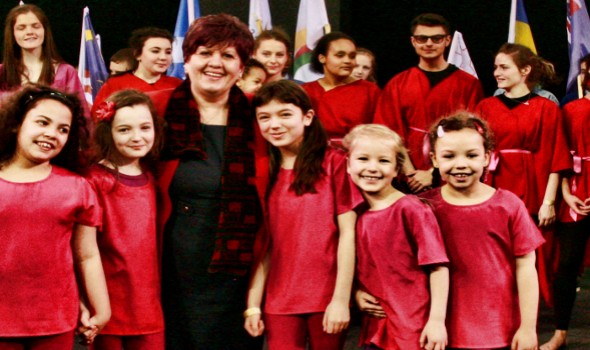‘Not being able to work kills people’
‘Not being able to work kills people’

Remzije Sherifi arrived in Glasgow in 1999 after being evacuated by the British army from a refugee camp in Macedonia. Her whole family had been forced to leave Kosovo where she had worked as a radio journalist. Now 58, she is a writer, theatre producer, and migrants’ activist. She talks to Marzanna Antoniak How has the situation of migrants changed since you arrived in this country? During my 14 years in Scotland I’ve seen changes in policy related to migrants, especially with regards to deportation and children. I’m proud that especially through the Scottish Refugee Policy Forum our members made a huge impact on the change of policy on children’s detention in Scotland and the UK. In 2010, the UK coalition government pledged to end child detention. I’ve also noticed that the culture is much more rich and diverse now, which manifests itself, for example, in the variety of cuisine and the fashion on the streets. People are now more used to living among different cultures and therefore find it easier to accept each other. These are very positive changes.Yet there are still very restrictive barriers for asylum-seekers, especially with regards to work and family reunion. The new conditions, if you want to bring your loved ones to the UK, are actually impossible to meet. If you had the power to change anything, what would it be? I’d allow people to work. Not being able to work kills people, makes them parasites of society. I’ve experienced this personally in Kosovo in the ‘90s when, under the police state, my right to work was taken away. It was a reality I couldn’t bear. It was slowly killing me. I’d make changes to the policy about family reunion. I’d make it easier for the families of migrants to join them in Scotland. People should be allowed to be together. Life in exile makes you hopelessly lonely.You can never be happy if your child or loved ones are left behind. How does Maryhill Integration Network engage with people? It has published books, organised theatre productions, photo exhibitions,fashion shows, and local and national events in high profile venues. I believe art enables us to highlight the stories of people who fled their countries. I didn’t speak any English when I arrived in this country, but I was able to volunteer using art as means of expression. Many of our service users have limited language skills, yet we try to create ways in which they can get involved. What do migrants need? They need welcoming faces and hospitality. They need better understanding of why they are here, so people know that many of them were forced to leave their country. What’s your opinion of the media portrayal of migrants? Bad stories sell better . I think migrants are especially targeted before elections because politicians try to gain votes by promising restrictions on immigrants and asylum-seekers. The media’s role is to present different perspectives, to highlight migrants’ contribution to the country. What’s your opinion of the media portrayal of migrants? Bad stories sell better . I think migrants are especially targeted before elections because politicians try to gain votes by promising restrictions on immigrants and asylum-seekers. The media’s role is to present different perspectives, to highlight migrants’ contribution to the country. Photo by Karen Gordon


